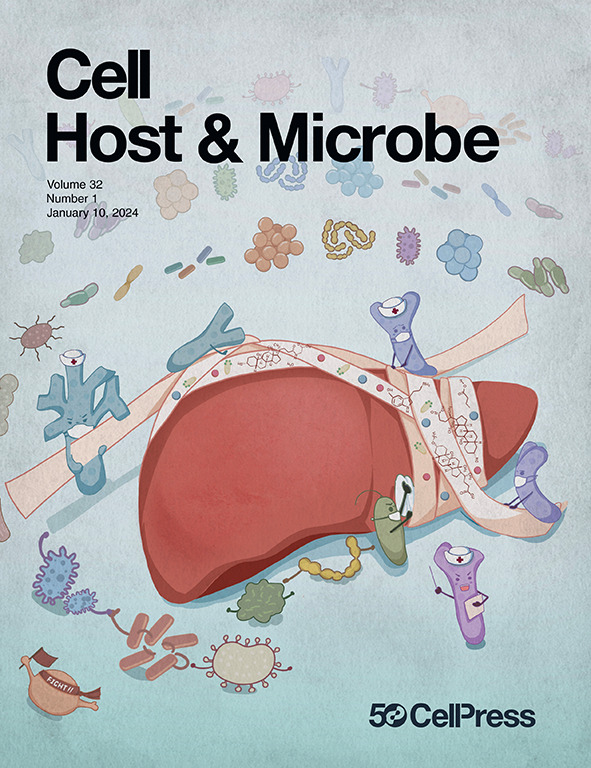出生前就被窃听了?母体微生物如何重新编程后代免疫
IF 18.7
1区 医学
Q1 MICROBIOLOGY
引用次数: 0
摘要
生命早期接触微生物会对健康产生长期影响。在最近的一篇Cell论文中,Stevens等人表明,母体抗生素治疗会导致生态失调,并损害后代对流感的免疫力。双歧杆菌代谢物可以逆转CD8+ T细胞功能障碍,支持从子宫开始的肠-肺免疫轴。本文章由计算机程序翻译,如有差异,请以英文原文为准。
Bugged before birth?: How maternal microbes reprogram offspring immunity
Early-life microbial exposures can have long-lasting health impacts. In a recent Cell paper, Stevens et al. show that maternal antibiotic treatment induces dysbiosis and impairs offspring immunity to influenza. CD8+ T cell dysfunction could be reversed with a Bifidobacterium metabolite, supporting a gut-lung immune axis that begins in utero.
求助全文
通过发布文献求助,成功后即可免费获取论文全文。
去求助
来源期刊

Cell host & microbe
生物-微生物学
CiteScore
45.10
自引率
1.70%
发文量
201
审稿时长
4-8 weeks
期刊介绍:
Cell Host & Microbe is a scientific journal that was launched in March 2007. The journal aims to provide a platform for scientists to exchange ideas and concepts related to the study of microbes and their interaction with host organisms at a molecular, cellular, and immune level. It publishes novel findings on a wide range of microorganisms including bacteria, fungi, parasites, and viruses. The journal focuses on the interface between the microbe and its host, whether the host is a vertebrate, invertebrate, or plant, and whether the microbe is pathogenic, non-pathogenic, or commensal. The integrated study of microbes and their interactions with each other, their host, and the cellular environment they inhabit is a unifying theme of the journal. The published work in Cell Host & Microbe is expected to be of exceptional significance within its field and also of interest to researchers in other areas. In addition to primary research articles, the journal features expert analysis, commentary, and reviews on current topics of interest in the field.
 求助内容:
求助内容: 应助结果提醒方式:
应助结果提醒方式:


